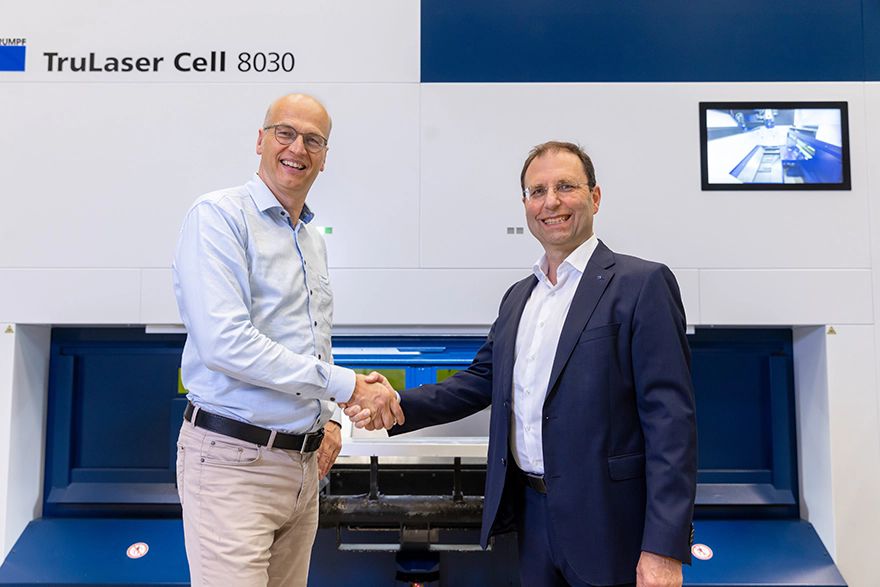 Richard Bannmüller (lright), CTO Trumpf Laser Technology, and Harald Kröger, head of sales and president of Automotive Business at SiMa.ai
Richard Bannmüller (lright), CTO Trumpf Laser Technology, and Harald Kröger, head of sales and president of Automotive Business at SiMa.aiHigh-tech company
Trumpf and
SiMa.ai, the software-centric, embedded-edge machine learning ‘system-on-a—chip’ company, has signed a partnership to develop lasers with artificial intelligence (AI). The goal is to equip several laser systems of Trumpf with AI technology in the near future. This includes systems for welding, cutting and marking, as well as powder metal 3-D printers.
Trumpf Laser Technology CTO Richard Bannmüller said: “AI has high strategic relevance for Trumpf. Our expertise in laser processes and manufacturing helps us to develop smart software for production purposes. SiMa.ai is the ideal partner for this next big step towards intelligent industrial solutions.”
Both companies bring their respective expertise to the collaboration — Trumpf, its laser application expertise, and SiMa.ai, its machine-learning system on chip (MLSoC) technology. Harald Kröger, head of sales and president of Automotive Business at SiMa.ai, said: “The rapid acceleration of AI innovation is reshaping how humans can leverage emerging technology — SiMa.ai’s powerful MLSoC and flexible software alongside Trumpf’s highest level of process understanding is enabling AI solutions that drive the industry forward. In combination with Trumpf’s advanced AI software, SiMa.ai’s one software-centric platform for all edge AI adjusts to any framework, network, model, sensor, or modality, making it possible to reach the next level of AI-assisted laser technology.”
Higher fidelity intelligenceSiMa.ai, headquartered in San Jose, California with offices in Stuttgart, Germany, employs around 200 people. Edge ML applications that run completely on SiMa.ai’s machine learning system on chip see a tenfold increase in performance and energy efficiency, bringing higher fidelity intelligence to machine learning use cases spanning computer vision to generative AI, in minutes. At Trumpf, around 90 people are working on AI worldwide, primarily in product development.
The joint collaboration intends to accelerate complex material processing. The powerful, compact and energy-efficient AI chips will be integrated directly into the laser systems. The AI-optimised sensor technology can monitor the quality of the laser welding process in real time and evaluate more than 3,000 images/sec.
In electric car production, for example, the real-time quality inspection during laser welding with the help of AI is expected to replace separate and complex testing procedures. Moreover, battery manufacturers will be able to increase the quality of their production in real time and reduce the reject rate which could ultimately lower the price of electric cars for consumers.